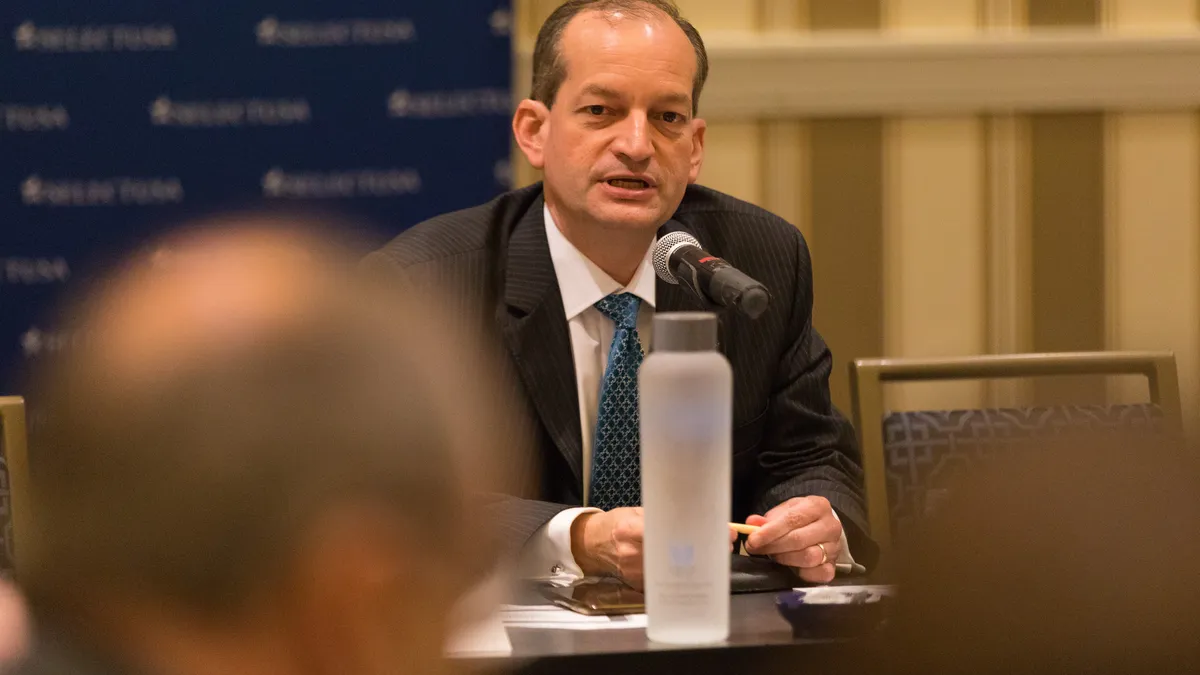Dive Brief:
- The U.S. Department of Labor (DOL) won't back any proposed raises to the federal minimum wage any time soon, Secretary of Labor Alexander Acosta made clear in a hearing before the House Committee on Education and Labor Wednesday.
- The statement comes at a time when House Democrats are prioritizing the issue, a push that included the introduction of a bill in both houses of Congress that would raise the figure to $15 per hour. "Higher wages are a good thing," Acosta said in reference to the outcome of a recent strike by workers at Stop & Shop that reportedly secured wage increases, adding that "we all benefit when wages go up." But Acosta remained relatively tight-lipped last week on DOL's stance, saying only that "we do not support a change in the federal minimum wage at this time."
- Acosta said DOL is also working with the Securities and Exchange Commission on a rulemaking that would add protections for workers in the process of planning for retirement, in response to questioning by Rep. Marcia Fudge, D-Ohio, but did not include specifics.
Dive Insight:
The hearing didn't offer much in the way of surprises regarding the Trump administration's labor and employment policy strategy, but Acosta's comments on the minimum wage offer some clarity to employers, who have had to adjust their pay practices due to a number of minimum-wage increases at the state and local levels in the past year alone.
President Donald Trump has gone back and forth on the issue, according to Politifact, expressing interest in a $10 minimum wage during at least one news conference during his 2016 campaign. Acosta said that although approximately three-fifths of states have passed a minimum wage that exceeds the federal level, DOL believes raising the federal minimum wage would amount to "imposing a cost structure" on states that have not done so.
U.S. wages haven't budged significantly despite recent economic growth, and economists don't expect any sort of abrupt growth for the foreseeable future. Hourly wages in the first quarter of 2019 grew, according to ADP, but others say that once inflation is factored in, wages are actually falling. Still, some large employers, including Target and Bank of America, recently announced voluntary minimum wage increases, using the offering as a talent acquisition and retention tool.
The secretary's comments on fiduciary standards follow DOL's 2017 decision to delay enforcement of the Obama administration's fiduciary rule, which would change the definition of "investment advice" as outlined in the Employee Retirement Income Security Act. In 2018, the 5th U.S. Circuit Court of Appeals vacated the rule in a divided decision, deeming parts of it "arbitrary and capricious."













